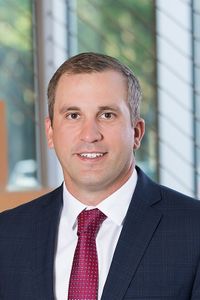 Weekly Column: Historic Wins and Looking Forward
Weekly Column: Historic Wins and Looking Forward
by Senator Casey Crabtree, Senate Majority Leader
MADISON–The 99th Legislative Session officially adjourned this week and work has begun on the 2025 session and a celebration of the 100th regular Legislature Session. Looking back on 2024, the House and Senate enacted impactful policies and we collaborated in an unprecedented way with each other and the Governor. The result: 233 bills passed and 233 bills signed into law—no vetoes.
That’s right. For the first time in decades, South Dakota’s Governor didn’t veto a single piece of legislation. This is incredibly atypical and has only occurred a handful of times since statehood. I credit this to the work that both chambers did to put legislation in the best possible form before sending it to the Governor’s desk.
The credit for a smooth session process-wise without unnecessary drama and a full slate of new laws is a credit to the quality of the public servants in the Legislature. My thanks to all of the legislators–especially the Senators–who take time away from their families and careers to help make their districts and our state better.
If this Legislative Session had been a basketball game, it would not have been a nail biter. This session was characterized by hard work, sound judgment, and collaboration. It might not have resulted in splashy headlines, but it was full of good outcomes for the people of South Dakota. In the weeks ahead, we’ll dive deeper into policy areas and talk about the results of the Legislature’s hard work.
Work for the next session is also already underway. Two summer studies were approved this week for in-depth studies to produce a better understanding of issues and develop legislation as necessary. The first group will look into the methodology and the constituency of the application of property tax assessments. While the Legislature has researched and enacted tax relief, we need to always make certain that property taxes are fairly assessed.
The second summer study group is regarding artificial intelligence and online age verification. This study will look into the state’s authority to regulate access by minors on global social media platforms and internet websites, including age verification applications. It will also examine if regulation is necessary for the use of AI by private citizens, corporations and even government agencies.
As we march forward with an eye to 2025, I invite you to reach out to me with your ideas and concerns facing our great state. Government in South Dakota works well because it’s close to the people. Your ideas can produce results, and I look forward to hearing from you in the weeks and months ahead.
###
